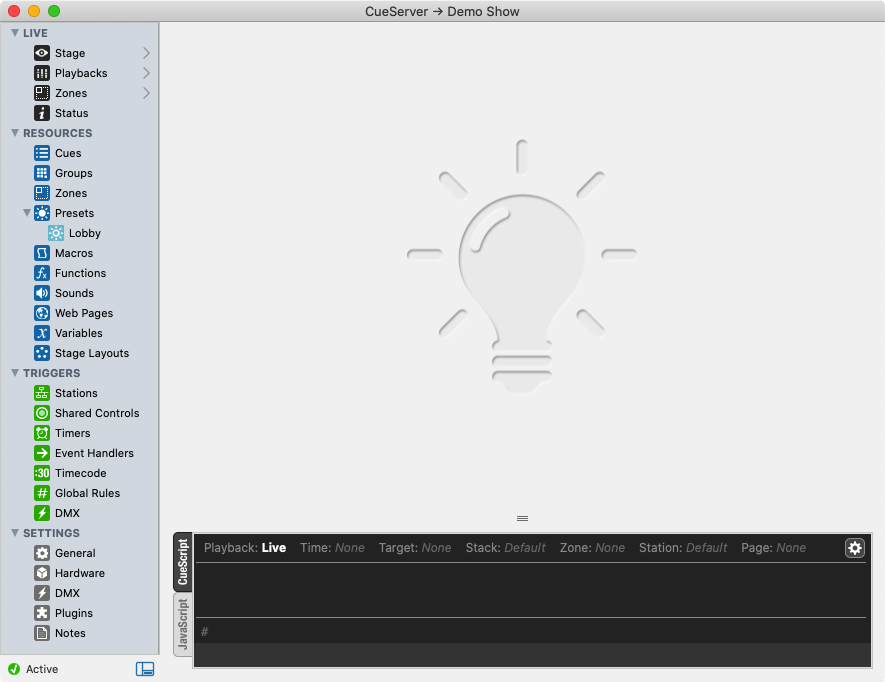Overview
The Editor Window is the primary window used to interact with, program and configure CueServer.
Use the Editor Window to view the “live” operation, edit resources and triggers, and set various configuration properties of a CueServer show.
The panel on the left of the window contains numerous views into the CueServer, such as Stage, Cues, and Location. The following manual sections describe the details of each of these CueServer editor views:
- Live – live views of CueServer operation
- Resources – various content types for CueServer projects
- Cues – scenes and timeline based streams
- Groups – definitions of groups of channels and fixtures
- Zones – listing of zones
- Presets – listing of presets
- Macros – user-defined scripts
- Functions – user-defined CueScript or JavaScript functions
- Sounds – audio clips
- Web Pages – custom web pages for the project
- Variables – view and update variables
- Stage Layouts – edit layouts for the live stage
- Triggers – definitions for incoming system events
- Stations – setup for stations, buttons, contact-closures and more
- Shared Controls – a global set of buttons
- Timers – setup for timers
- Event Handlers – handlers for plugin events
- Timecode – SMPTE timecode events
- Global Rules – a global list of rules
- DMX – trigger actions or events based on incoming DMX values
- Settings – system preferences
The panel at the bottom of the window is a live command line that allows the user to directly enter CueScript commands to cause the CueServer to perform operations. Note that this command line is only visible if you are editing the active show file in an “online” CueServer.


